A Lost Boat Resurfaced Eight Years After It Went Missing With A Strange Message
Abby Sunderland is not like most young women. While other girls her age might be concerned with what they're going to wear to school that day, in 2010, as a teenager, Abby set sail on a record-breaking sailing trip around the world. During her trip, Abby experienced both beauty and disaster, but eight years after her journey was finished, she received a random phone call.
The Journey Of A Lifetime

In 2010, 16-year-old Abby Sunderland set out to do something no one her age had ever accomplished. She came from a family of sailors and wanted to sail around the world on a solo trip.
Her brother, Zac, was a significant motivator, and the year before, he became the first person under 18 to complete the journey. Even though she was surrounded by the right people and had her brother to look to for advice, it was still a daunting mission.
A Long-Time Dream

Abby had dreamed of setting the record her whole life. Yet, even at the young age of 16, she had already logged hundreds of hours out on the water with her father, mother, and the rest of her family. However, it was her dad who gave her the toughest training in order to prepare for her trip.
His lessons taught her the reality of what she was about to go through. Laurence Sunderland was well aware that his daughter would face tough times and if she wasn't properly prepared, she was doomed.
Her Mother Was In Full Support
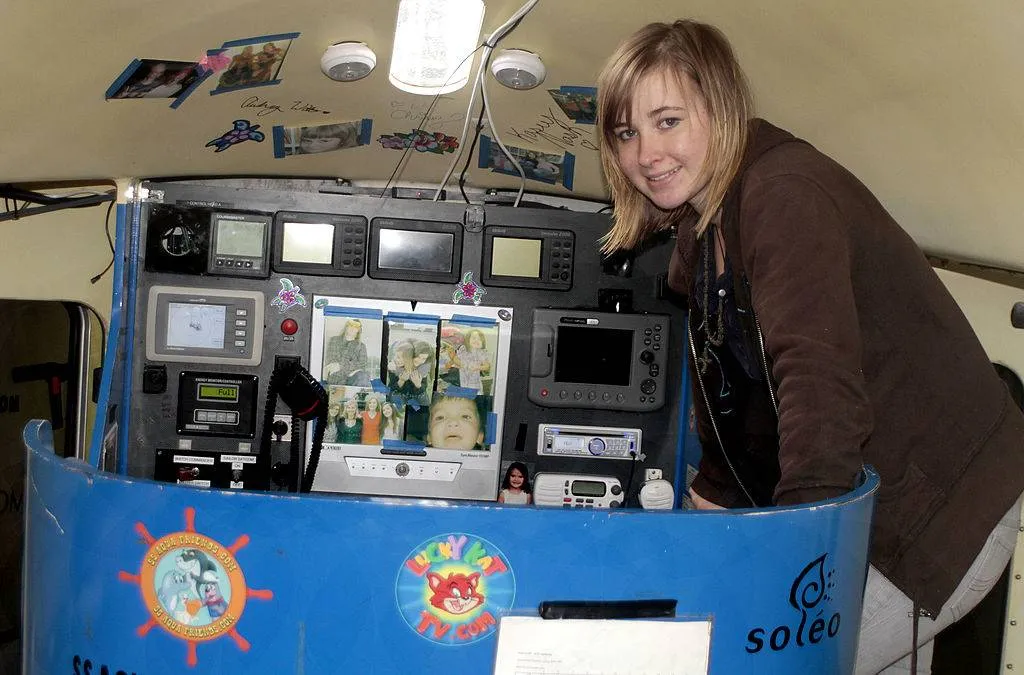
Abby's mother, Marianne Sunderland, commented, "Could there be a tragedy? Yea, there could be. But there could be a tragedy on the way home tonight, you know, or driving with her friends in the car."
So, the planning of the trip began. Abby knew she was lucky to have such supportive parents by her side, or the trip wouldn't have been possible without their help. Now, all she wanted to do was make them proud.
Her Vessel
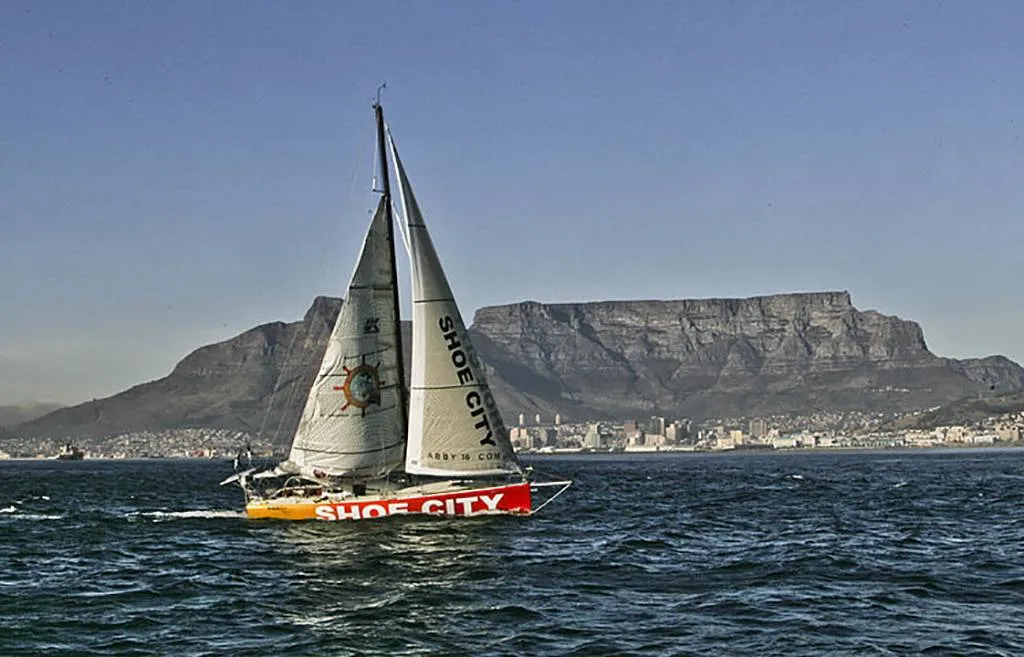
Abby's boat, Wild Eyes, was a 40-foot sloop built in 2001 and designed by Jutson Yatch, and built specifically for sailing through the Southern Ocean. Before being owned by the Sunderland's it went under the name BTC Velocity, and finished second in the Class 3 category of the Around Alone 2002 race.
The vessel was built using fiberglass with Kevlar reinforcement into five watertight compartments. It was purchased in 2009 by the Sunderland family and was refitted in Marina del Rey, California, with new electrical, communication, and navigation systems.
The Plan
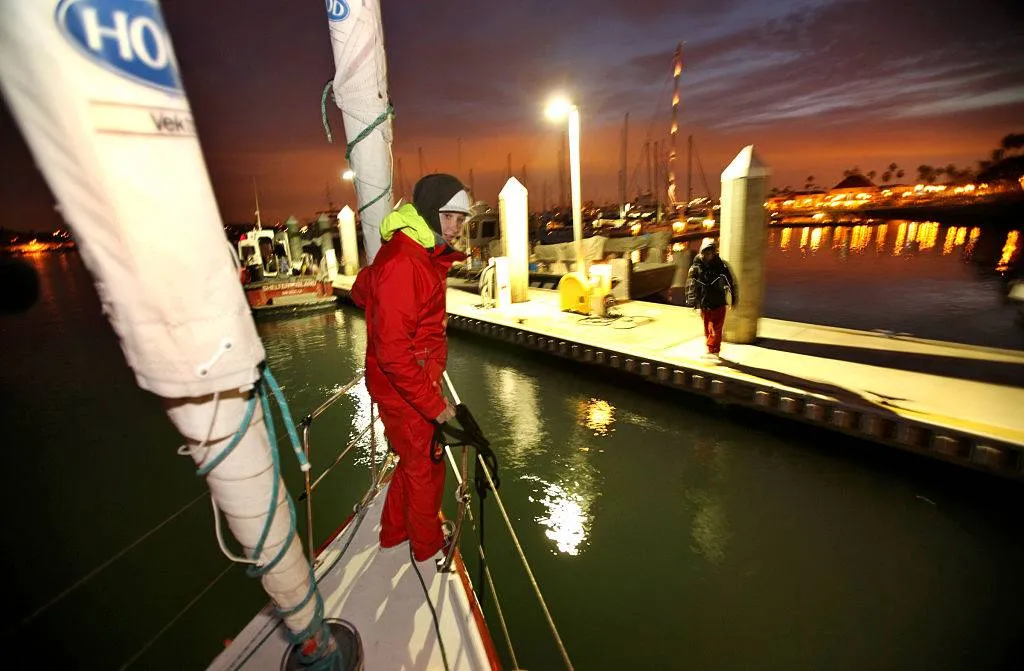
The route that Abby planned to sail began in Marina del Rey, California, then to Cape Horn, Cape of Good Hope, Cape Leeuwin, and back to Marina del Rey.
The goal was to complete the circumnavigation with a series of ten legs, all solo and unassisted, following definitions set by the International Sailing Federation World Sailing Speed Record Council, in which, according to them, the equator must be crossed in order for the trip to count as a full circumnavigation.
More Threats Than Just Weather

Not only did Abby need to be aware of all the weather coming her way to avoid disaster, there were also pirates roaming the seas. However, there was little she could do in order to prepare for the possibility of running into a ship of violent criminals.
Abby admitted that she was "definitely nervous," but her fears wouldn't hold her back. Then, on January 23, 2010, she boarded her ship called Wild Eyes and set sail from Marina del Rey, California.
She Knew She Was In For An Adventure
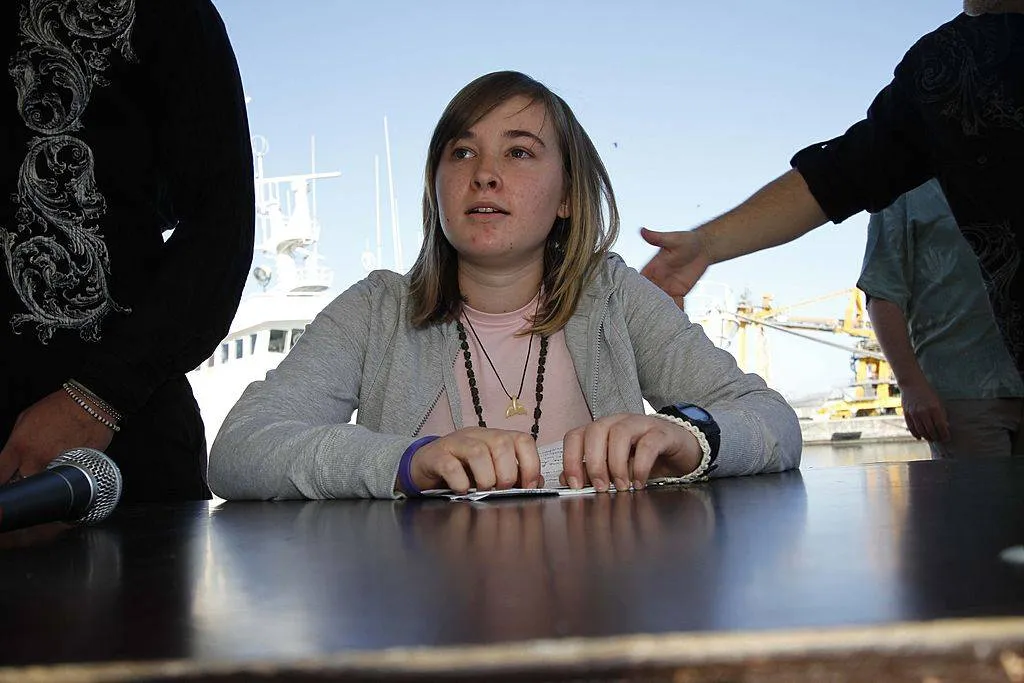
Almost immediately after setting sail from Marina del Rey, Abby realized just how serious of a situation that she was up against. Even though she'd had plenty of experiences on the open ocean, being by herself presented a whole new set of problems.
In an interview that took place over 100 days since she first set out, Abby admitted that a massive wave struck her ship at one point and that wind was becoming an increasing problem.
Her Trip Was Documented By Sail-World

Sail-World took note of Abby's departure time, stating, "While ... she will round the Horn in the height of summer when conditions should be the best they can be, her delayed departure ... means that by the time she sails south of Australia, the weather will be approaching autumn, and the weather will be deteriorating."
However, even after being warned about the weather, Abby felt that it was too late to back by this point.
She Ran Into Some Problems
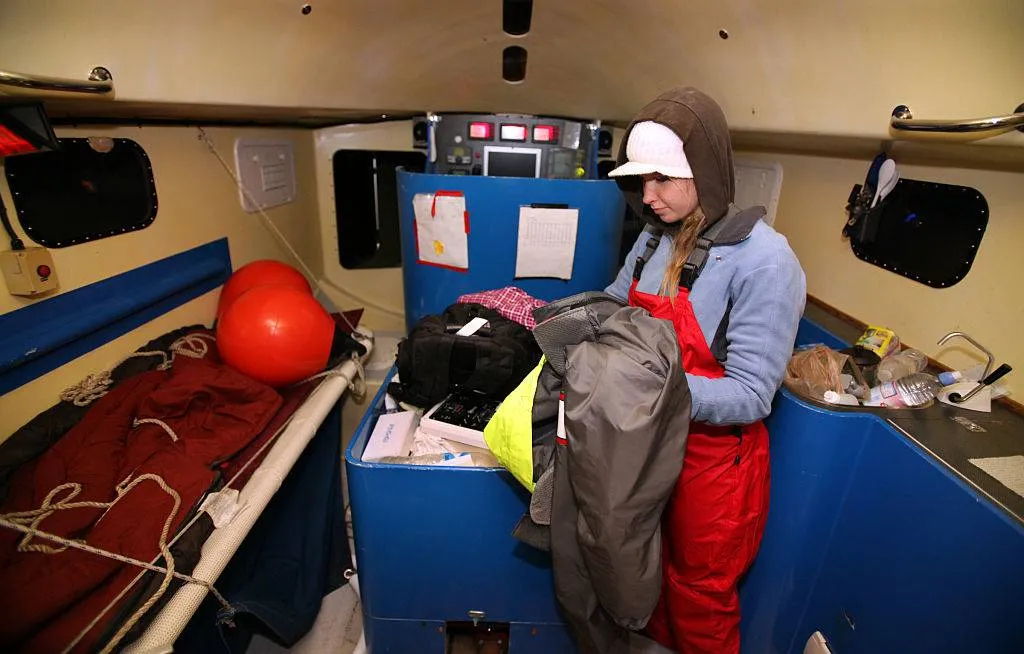
At one point, howling gusts of wind ripped through one of her sails and water flooded the engine. Luckily for Abby, she was able to handle both problems, but Wild Eyes was taking some serious damage.
However, although Abby was disappointed, she was eventually forced to give up. When she knew that all hope was lost, she hit her emergency beacon, and French and Australian search and rescue authorities came to the rescue. Luckily she had all the supplies if they couldn't get to her immediately.
The Damage Was Severe

On the morning of June 10, 2010, Abby was sailing in high winds and suffered multiple knockdowns in a remote area of the Indian Ocean, around 2,000 miles west of Australia.
Abby then lost satellite phone contact. The nearest known was about 400 miles away from her electronically reported position. Her beacon position at the time was published as 40° 48′ 0″ S, 74° 58′ 0″ E, around 2,000 nautical miles west-south-west of Perth.
Getting Rescued

The following morning, the Australian Maritime Safety Authority sent a chartered passenger jet to the area with 11 trained SES air observers and a FESA officer on board. The plane had a 4,7000-mile round trip from Perth to Abby's boat, which was almost too far for the crew to reach.
Brief radio contact was made with Abby who said that she had righted the boat and was uninjured. Abby's mother said that the pilot of the search plane told her that the boat had most likely been hit by a rogue wave.
She Was Incredibly Lucky
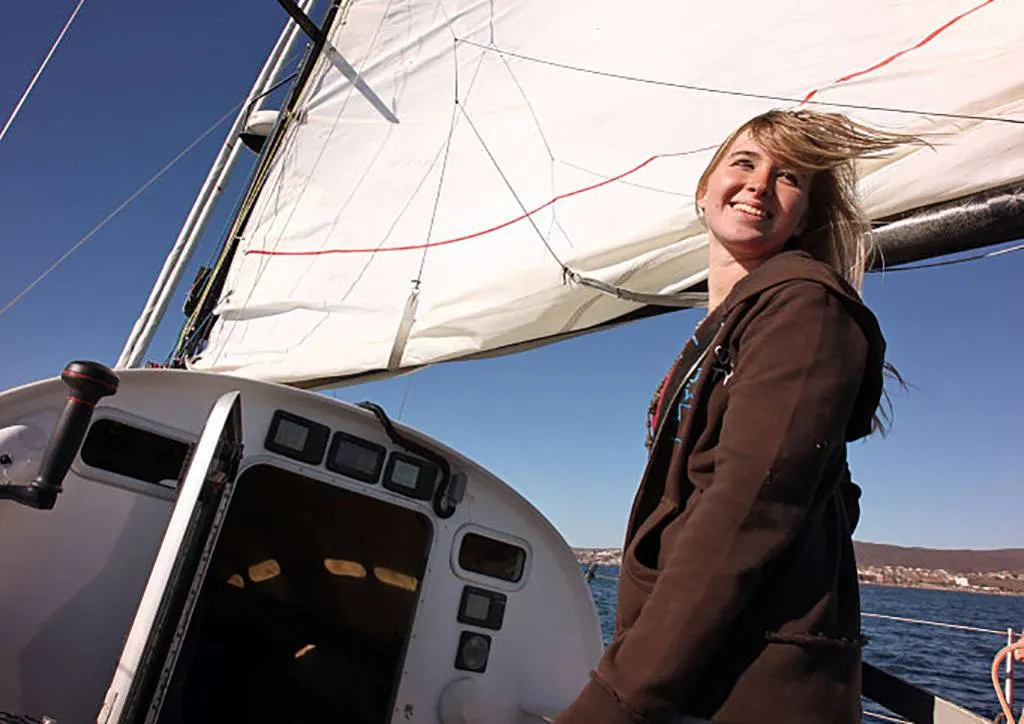
The area where Abby was found is rarely visited by merchant ships or other sea traffic, so the Australian Maritime Safety Authority's Rescue Coordination Centre then sent three ships to the scene.
Abby was then rescued by the French commercial fishing vessel Ile de la Réunionin in the afternoon of June 12, 2010, although didn't go off without a hitch. The rescue took place during rough seas, with the captain of the French fishing boat falling into the water and having to be saved as well.
She Was Safe At The Moment
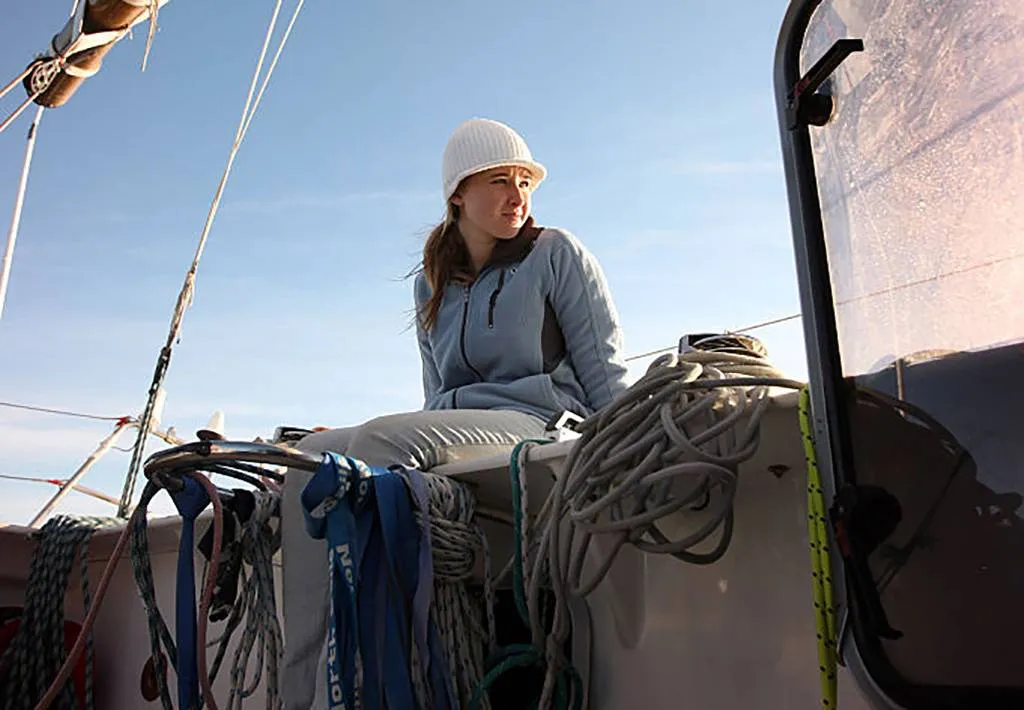
Her parents wrote to her followers, stating, "Abby has a dry suit, survival suit, life raft and ditch bags with emergency supplies. If she can hang on and keep warm, help will be there as soon as possible."
After a long 13 hours, the rescue teams finally arrived at Wild Eyes. Although the boat was bobbing upright in the water, the rigging was a mess. Abby was then taken to a nearby island where she was met with quite the surprise.
The Cost Of The Rescue

Unfortunately, the French and Australian taxpayers had to pay for Abby's rescue mission with the Australian government confirming that neither Abby nor her family could be billed for the expenses. The cost is assumed to be around $300,000 in Australian currency, with some criticizing Abby's teams' lack of financial help.
The Daily Telegraph went so far as to state, "failed teen solo sailor Abby Sunderland's team did not put a cent towards her rescue but still tried to get the public to pay for the boat's salvage."
Her Brother Was Waiting

To Abby's shock, her brother Zac was waiting on the island for her! Not only did he fly to Reunion Island to commend her for her bravery, but he also brought her much-needed supplies like fresh clothes and a hairbrush. Now, it was time to go back to California.
While Abby was happy to be back on land and out of the grip of the ocean, she missed the memories such as "racing along surfing down giant swell and sitting on the deck and watching the sunset."
Safe At Home

Of course, Abby's parents, Laurence and Marianne, felt sorry that their daughter had to give up on her dreams. However, they were just relieved that Abby hadn't been badly injured.
Unfortunately, the same couldn't be said for her ship Wild Eyes, which she was forced to abandon at sea. The ship had been through so much that it was left floating in the ocean, which was a decision that the rescuers were forced to make. Abby assumed her boat was long gone.
Finding The Boat
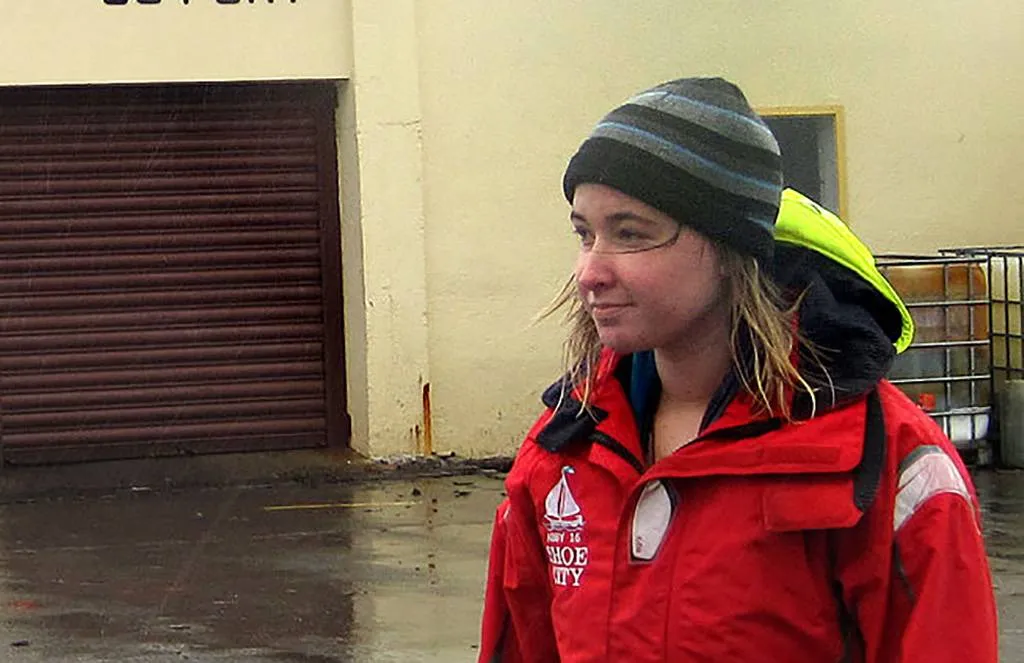
Then, eight years later, the Sunderland family was contacted by authorities who notified them that a tuna-spotting aircraft saw a yellow yacht flipped upside down off the coast of Australia's Kangaroo Island. Yet, when they towed it in, the boat's name stood out.
It turned out to be Abby's ship! An oceanographer named David Griffin theorized that the ship very well might have circumnavigated the entire world over all those years. Therefore, Abby may not have completed the journey, but Wild Eyes did!
There Was Almost A Reality Show
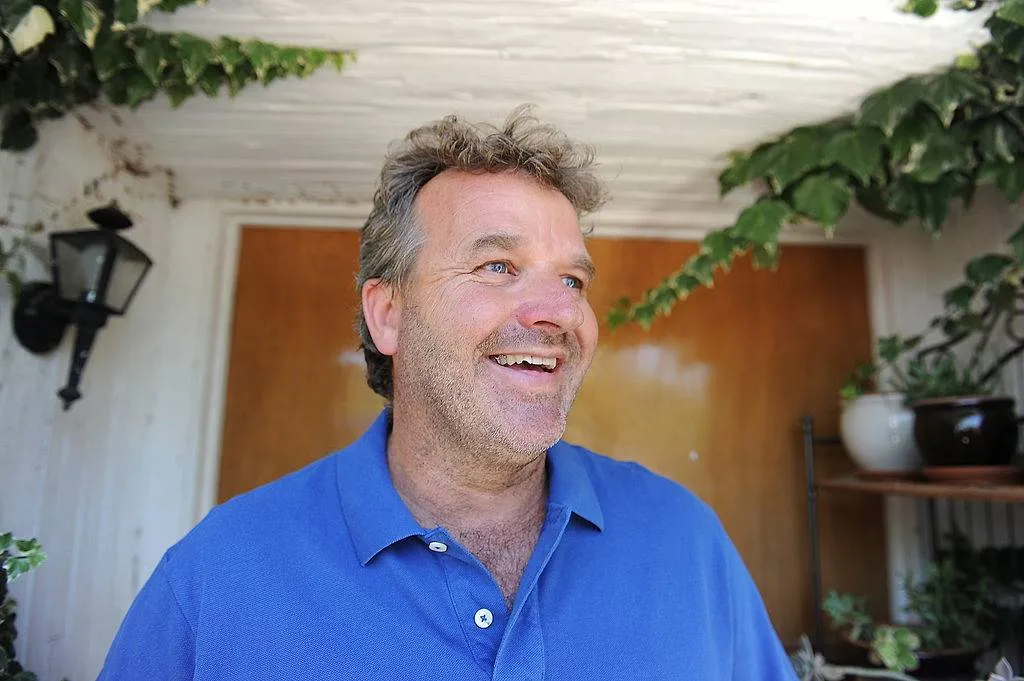
After Abby's rescue, it was reported by The New York Post that after Abby set sail from Marina del Rey, her father signed a deal with Magnetic Entertainment for a television show about his family titled Adventures in Sunderland.
He later commented on the potential project saying, "The show might be about family, it might be about Abigail's trip. It's something that was shopped around." The family later wrote on their blog that "The show was shopped and not sold [...] There is no reality TV show or documentary in the works, and we will not be pursuing one."
Documentary And A Book

Although the reality show fell through, Abby was the subject of a documentary film produced and directed by her father titled Wild Eyes: The Abby Sunderland Story. The film was released on September 8, 2011.
On top of the documentary, Abby also released a book co-written by Lynn Vincent about her experience titled Unsinkable: A Young Woman's Courageous Battle on the High Seas. The book was released on April 12, 2011, which resulted in Abby traveling the country for book signings.
It Wasn't A Complete Failure
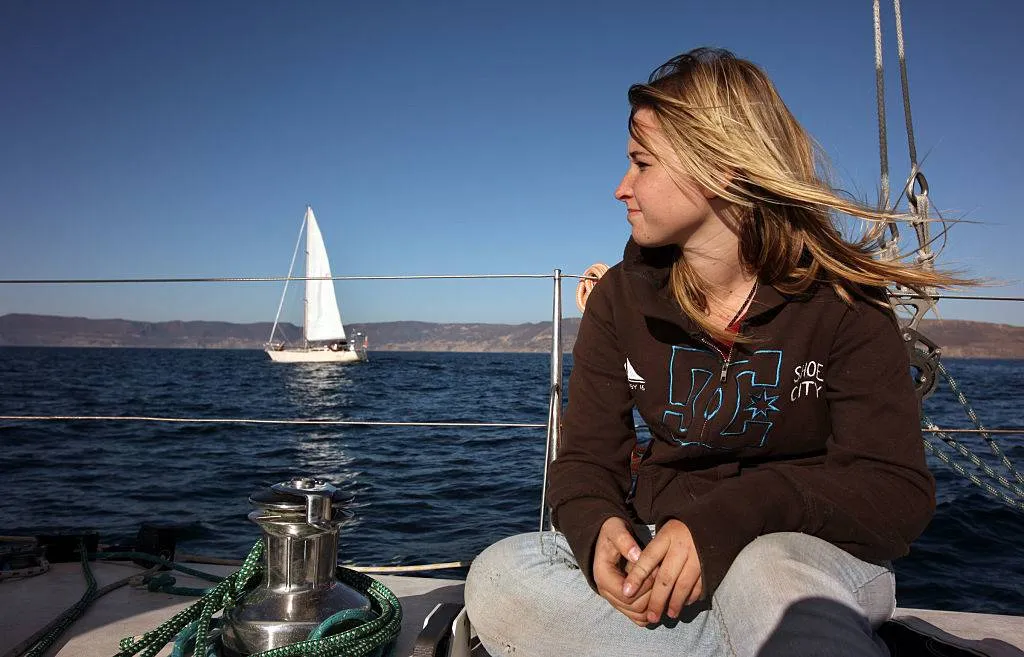
Incredibly, Abby still managed to travel 12,000 miles before she was forced to be rescued, which is still an amazing feat. Fortunately for her, the emergency beacon worked; otherwise she may have ended up like the two women that were aboard the Sea Nymph.
Abby now lives in Centreville, Alabama, with her husband, a US Navy sailor named Justin T. Sims, whom she shares three children with plus one on the way.
A Three Week Trip
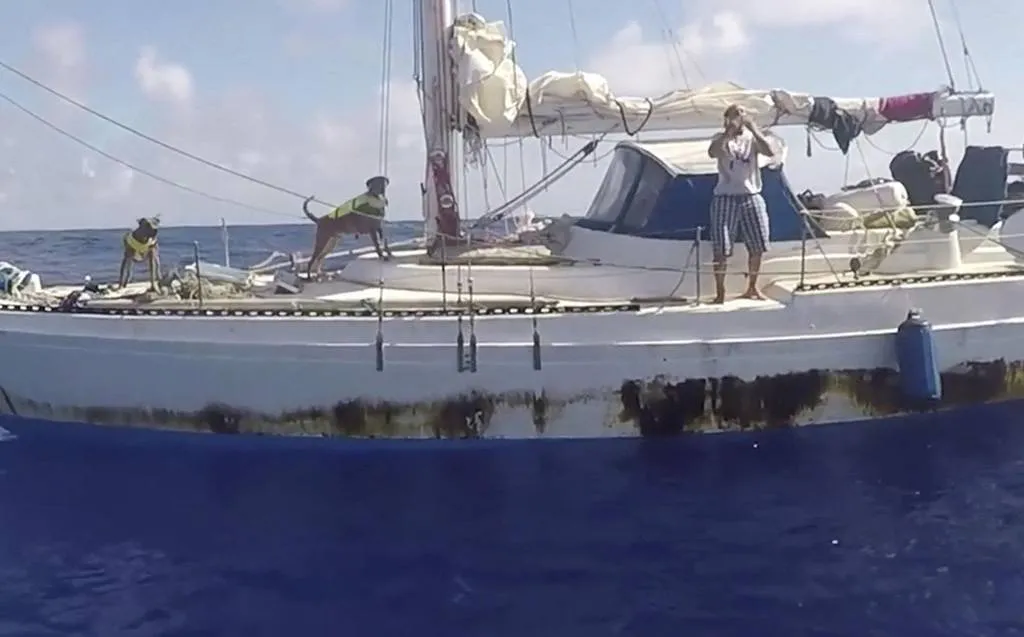
In early May of 2017, Jennifer Appel and Tasha Fuiava, along with their two dogs, set sail on their yacht, the Sea Nymph. Their plan was to sail from Honolulu to Tahiti, a trip that was going to take an estimated three weeks.
However, their plans drastically changed when the unexpected happened. Just hours after setting sail, a storm damaged their boat's steering system, leaving them unable to set any course. They were at the whim of the Pacific Ocean.
New Friends
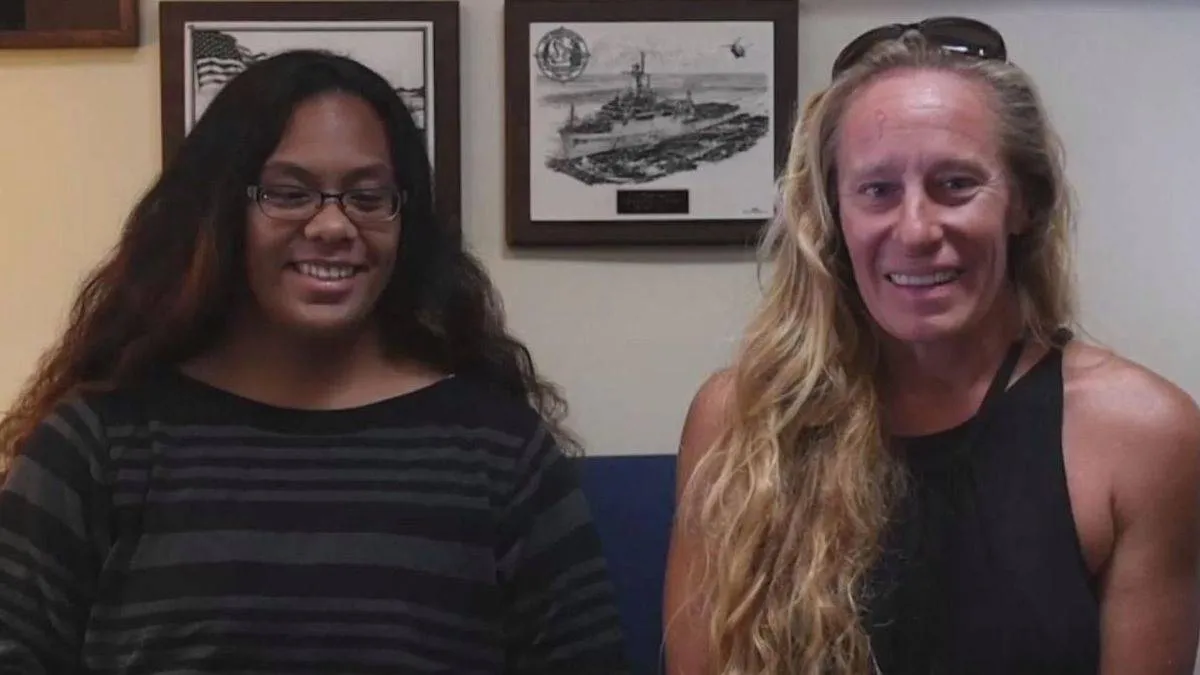
The two women had just met a few months before, with Appel being 47 and Fuiava being only 27 years old. However, despite their age difference, one thing they had in common was that they both knew almost nothing about sailing.
Fuiava had previously worked as a security guard in Samoa while Appel was a landscaper in Texas. Appel had a plan to settle on a Polynesian island to get into organic gardening, and Fuiava was just along for the ride.
They Seemed Prepared

Despite the fact that both women knew very little about sailing, they did make some extensive preparations for their trip. Incredibly, they managed to pack enough food and water to last them and their dogs for an entire year, even though they were only expecting to be sailing for around three weeks!
So, regardless that their trip wouldn't take a full year, they definitely were confident that they weren't going to starve in the process.
People Started To Become Concerned

As the days passed, the girl's caring families and friends began to become concerned after they hadn't heard from them in some time. Fuiavia's mother reported her daughter missing at sea after just a few days after not hearing from her.
At that point, nobody knew where they were or that they had been caught in a storm. Then, in late October 2017, almost five months after the two women went missing, their boat was spotted. Taiwanese fishermen found their boat around 1,000 miles off the coast of Japan.
Alive And Well

After an incredible five months at sea with no other human contact, the fishermen were thrilled to discover that Appel, Fuiava, and their two dogs were alive and well!
The fishing crew then contacted the U.S. Coast Guard based out of Guam, who then dispatched The USS Ashland to rescue the two women and their pets. Appel stated that when they saw the ship on the horizon it was the ultimate feeling of relief.
They Had To Deal With Sharks
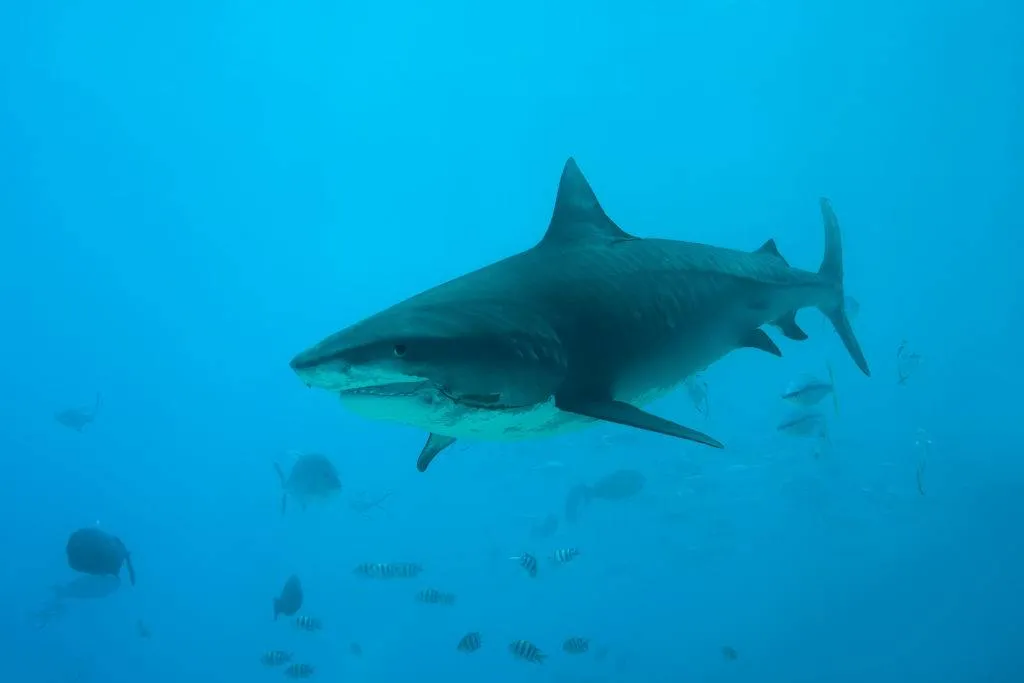
As if being stranded in the middle of the Pacific Ocean wasn't bad enough, Appel also explained that the two girls and their dogs were constantly being harassed by a group of tiger sharks.
She explained that a group of sharks, a lot of them very big, surrounded their yacht and were teaching their young how to hunt. Supposedly, it would happen almost every night and they could hear the sharks ramming the hull of the boat.
Not Everyone Believed Them
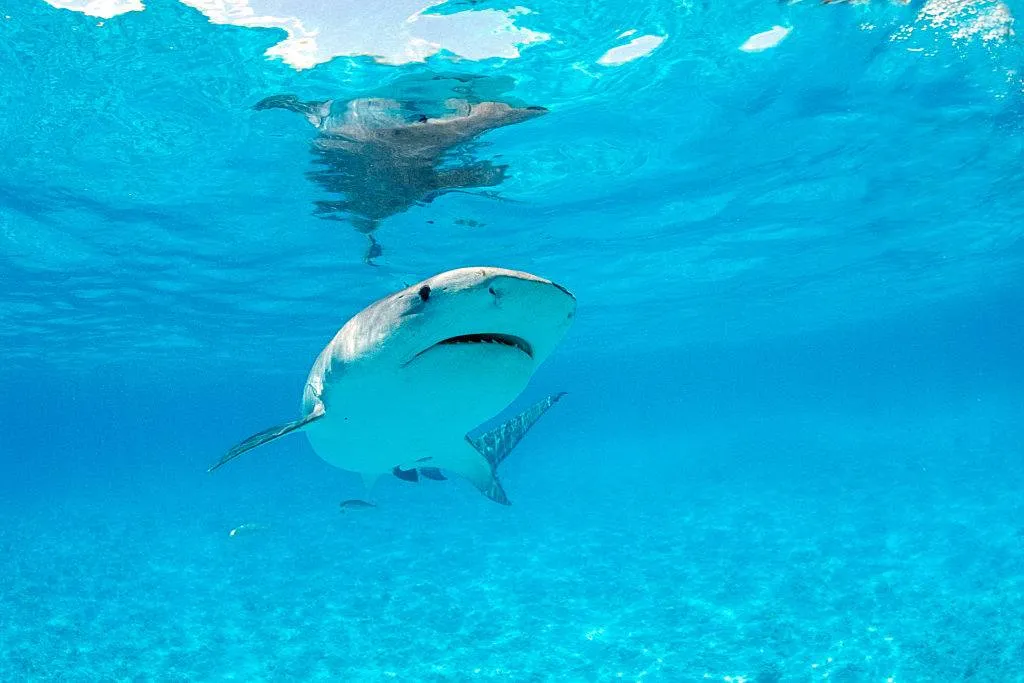
As Appel and Fuiava's story began to circulate, some people began to doubt that all they were saying was true. One of the biggest non-believers was George Brugess, a shark expert from The Florida Museum of Natural History.
Brugess claimed that tiger sharks are not social animals and therefore would never travel in groups. He also states that tiger sharks could no grow to be as large as the girls described and they don't teach their young how to hunt.
Questions About The Storm

On top of the sharks, others were questioning the validity of the storm that left them stranded in the first place. Apparently, The National Weather Service reported no storms on May 3rd when the women claim that there was a very large more.
Furthermore, the footage from NASA satellites backed up the weather reports, even though Appel claims that there was. According to her, they were caught in a Force 11 storm that created massive waves, although people still thought she was exaggerating.
More Issues

On top of everything else, another big mystery about the Sea Nymph is why a distress signal was ever sent out. There was a working Emergency Position Indicating Radio Beacon aboard, so if the women were truly in danger, why did they not use their rescue device?
When asked about it, the two claimed that they never felt in danger enough to activate the alarm. It seems strange that the two women would last for five months, but maybe they were enjoying themselves.
Questions Left Unanswered

Although it's still unclear what these two women were doing out on the water for five months, luckily, neither one of them or their dogs got hurt, so it's no harm, no foul.
Chances are, these two ladies maybe just wanted to get off of the grid for a while, and they thought that disappearing on the Pacific Ocean for almost half a year was the best way to go about!









